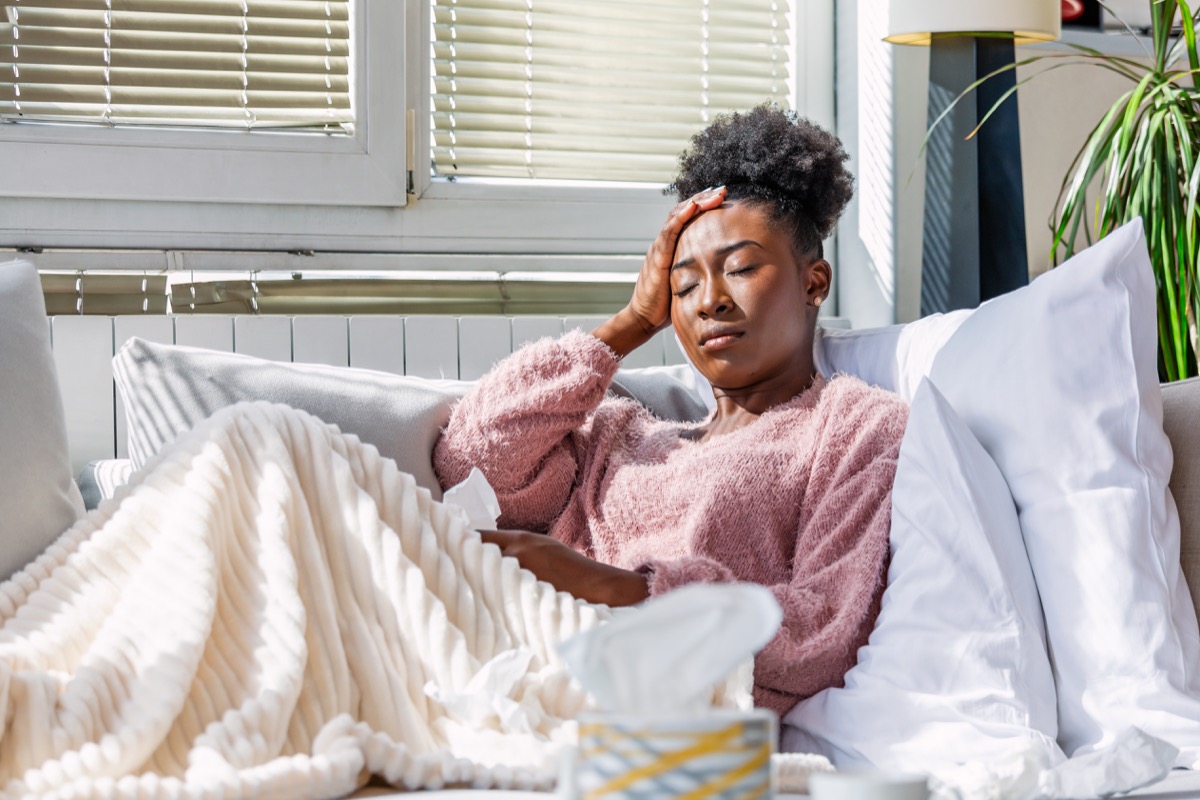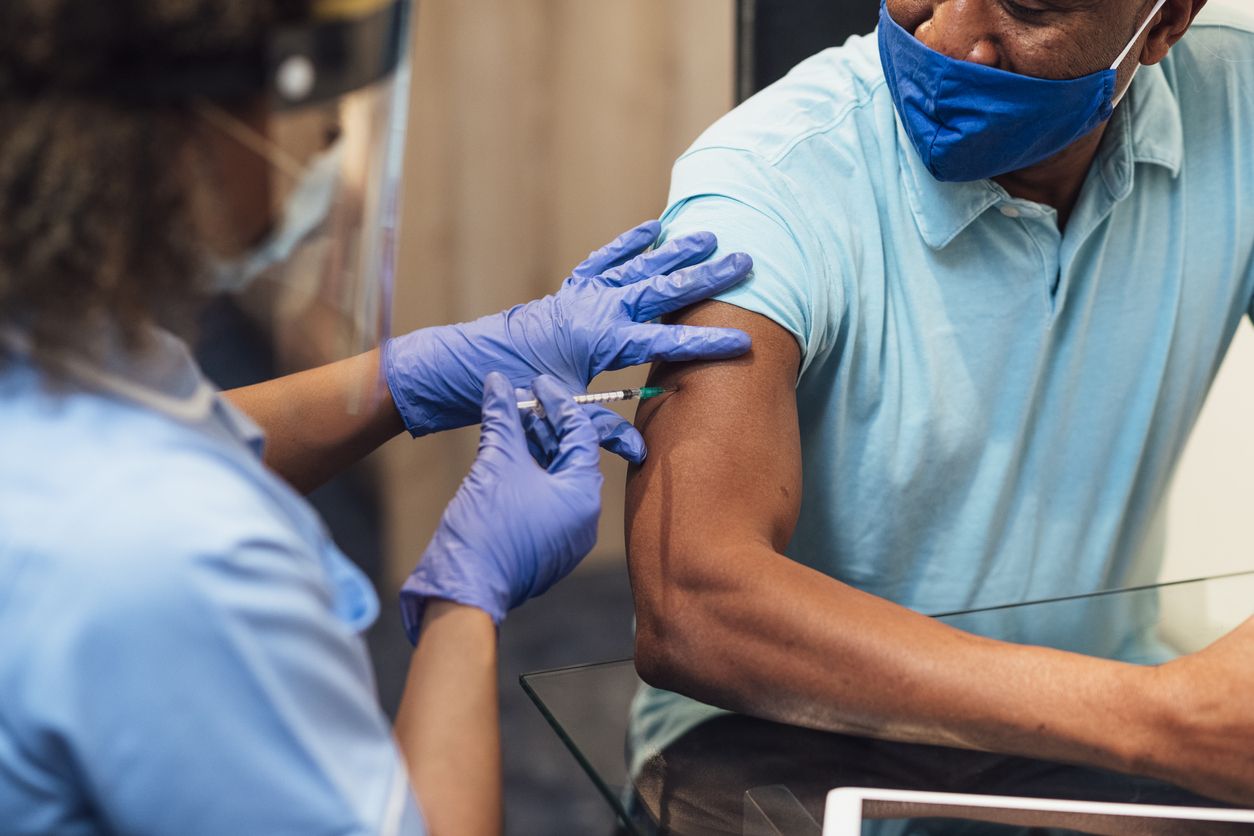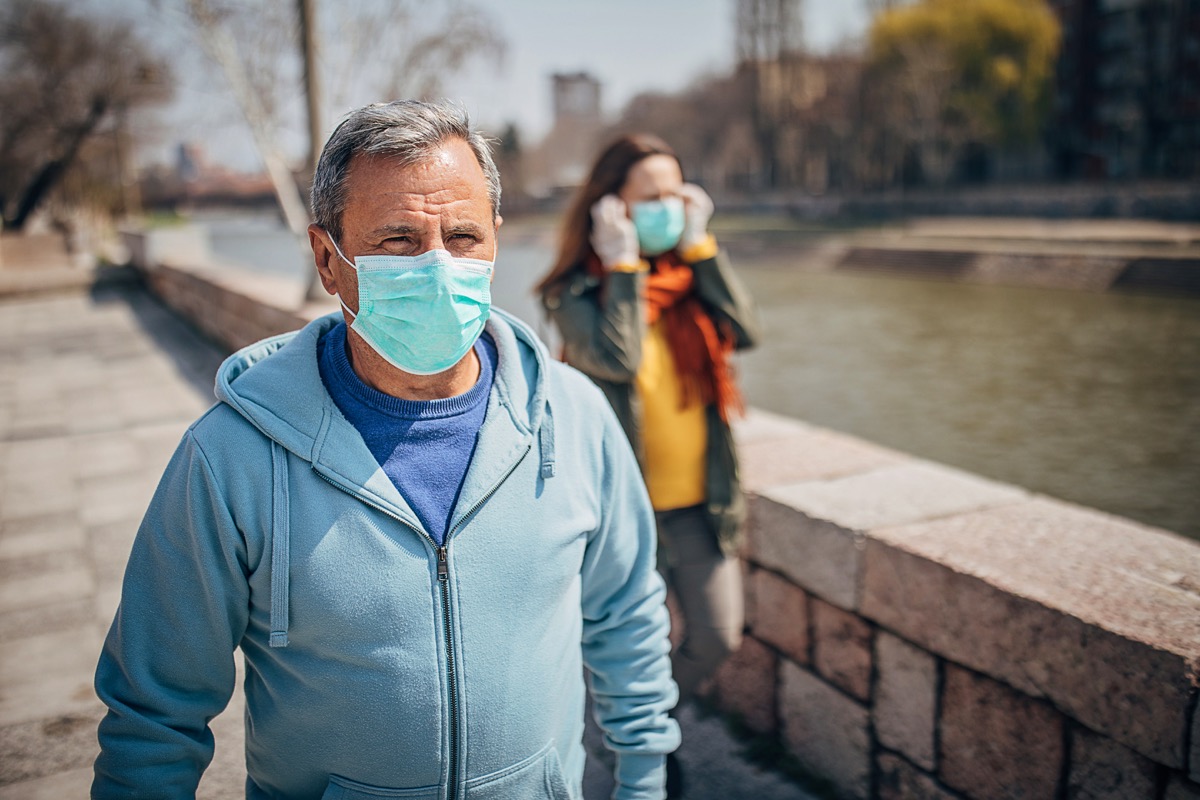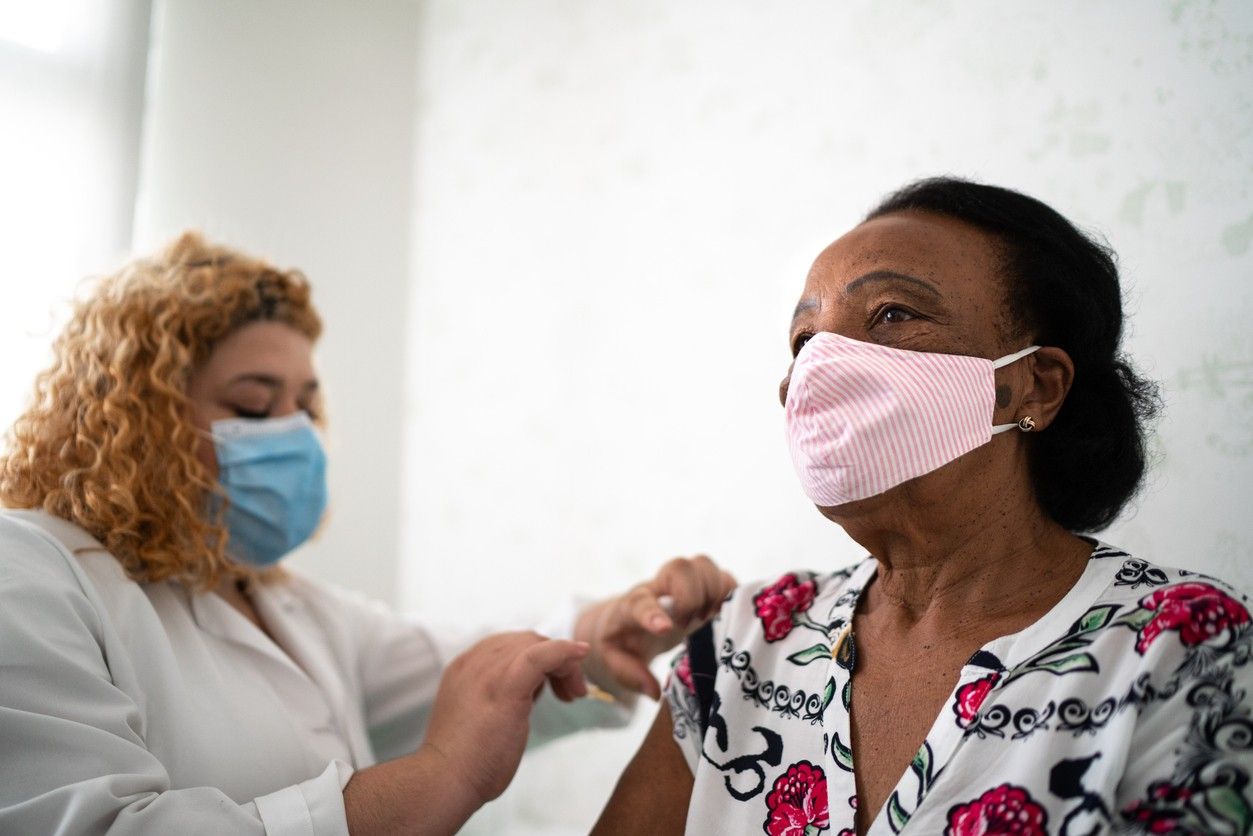While everyone responds to vaccinations differently, the side effects of the COVID vaccines currently approved for use in the U.S. tend to show up on a predictable schedule. According to Margaret Kitt, MD, MPH, lead for the Essential Workers Team, Vaccine Task Force of the CDC COVID-19 Emergency Response team, if you do develop side effects from the COVID vaccine, you’re mostly likely to see them “the day after the vaccination, and especially after the second dose.” And if you want to stay safe post-shot, check out why You Should Never Do This After Getting the COVID Vaccine, Officials Say.ae0fcc31ae342fd3a1346ebb1f342fcb Since the Moderna and Pfizer vaccines were only recently approved for use in the U.S., there isn’t enough data yet to say exactly how long they keep people immune to COVID. However, according to Clifford McDonald, MD, of the CDC COVID-19 Emergency Response Team, studies show that, thus far, there is typically a minimum period during which people maintain “protective antibody levels.” McDonald explained that recent research “demonstrate[s] protection for 120 days from the first dose.” And for the latest COVID news delivered straight to your inbox, sign up for our daily newsletter. While many of us are eager to see the day when face masks are a thing of the past, that doesn’t mean you can immediately ditch your mask post-vaccine. “Right now, masks are still recommended after vaccination,” explained Captain Sara Luckhaupt, MD, MPH, a member of the Essential Workers Team, Vaccine Task Force of the CDC COVID-19 Emergency Response Team. “We also don’t yet know whether or not getting a COVID vaccine will prevent you from spreading the COVID virus to others, even if you haven’t gotten sick [yourself],” Luckhaupt went on to explain. That means continued mask-wearing is an important safety measure in the future. And for more on the face coverings to avoid, check out The 6 Face Masks the CDC Warns Against Using. Though having had COVID may confer some protective immunity, the CDC recommends that everyone who can safely get the vaccine—whether they’ve had COVID or not—do so. McDonald explained that the immune response from COVID infection “is more variable and, on the whole, maybe less intense than the immunity provided by vaccination.” However, if you have had COVID, your “vaccination should be deferred for at least 90 days” post-recovery. And if you want to stop the spread, Don’t Go to This One Place After Getting Vaccinated, Doctors Warn.



